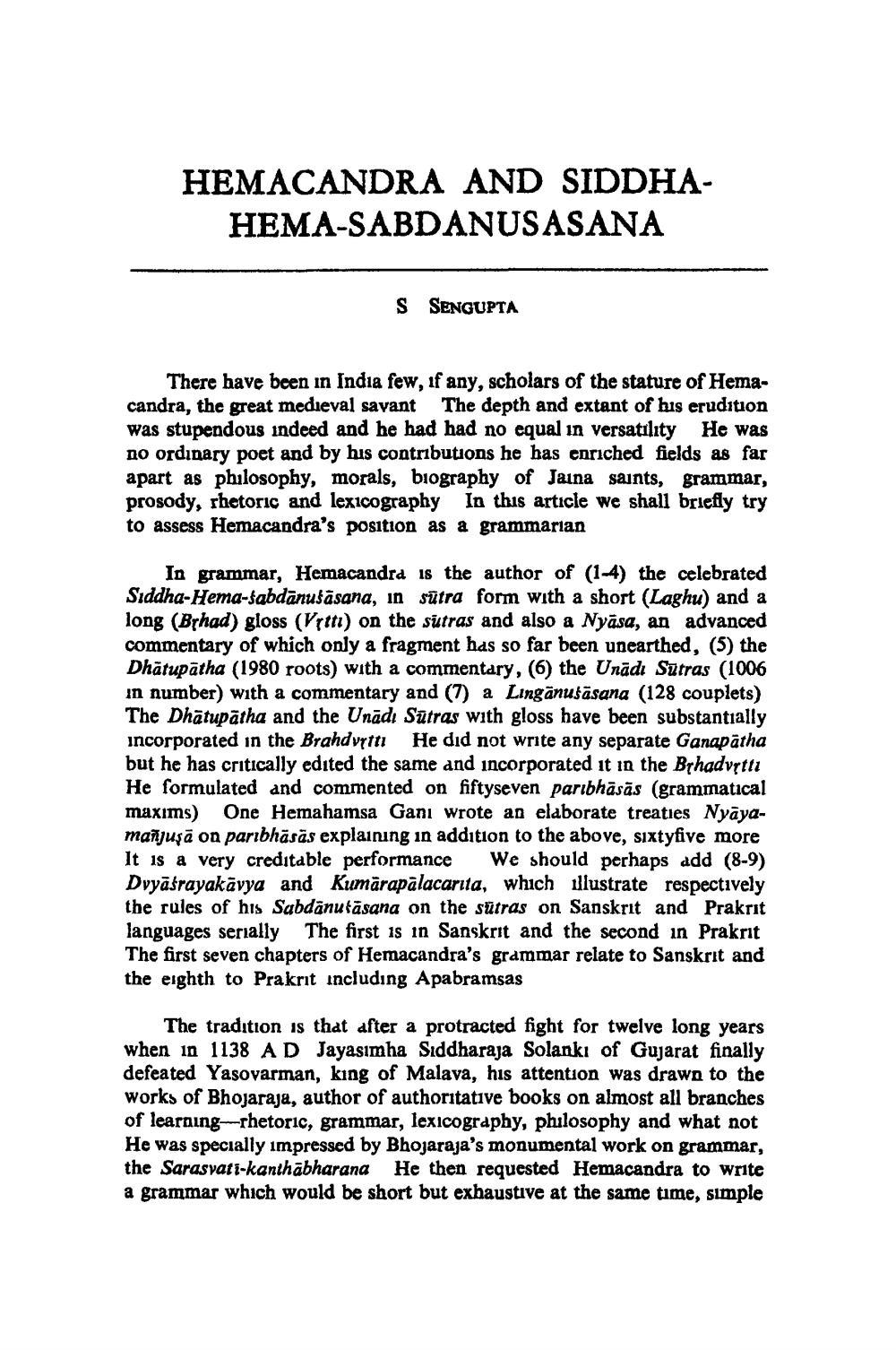________________
HEMACANDRA AND SIDDHA
HEMA-SABDANUSASANA
S SENGUPTA
There have been in India few, if any, scholars of the stature of Hemacandra, the great medieval sayant The depth and extant of his erudition was stupendous indeed and he had had no equal in versatility He was no ordinary poet and by his contributions he has enriched fields as far apart as philosophy, morals, biography of Jaina saints, grammar, prosody, rhetoric and lexicography In this article we shall briefly try to assess Hemacandra's position as a grammarian
In grammar, Hemacandra is the author of (1-4) the celebrated Siddha-Hema-sabdānusāsana, in sūtra form with a short (Laghu) and a long (Brhad) gloss (Vrtti) on the sūtras and also a Nyasa, an advanced commentary of which only a fragment has so far been unearthed, (5) the Dhātupātha (1980 roots) with a commentary, (6) the Unādı Sutras (1006 in number) with a commentary and (7) a Lingānusāsana (128 couplets) The Dhātupātha and the Unādı Sutras with gloss have been substantially incorporated in the Brahdvytti He did not write any separate Ganapatha but he has critically edited the same and incorporated it in the Brhadvytti He formulated and commented on fiftyseven paribhāsās (grammatical maxims) One Hemahamsa Gani wrote an elaborate treaties Nyāyamanjuşā on paribhāsās explaining in addition to the above, sixtyfive more It is a very creditable performance We should perhaps add (8-9) Dvyāšrayakavya and Kumarapalacarita, which illustrate respectively the rules of his Sabdanusāsana on the sütras on Sanskrit and Prakrit languages serially The first is in Sanskrit and the second in Prakrit The first seven chapters of Hemacandra's grammar relate to Sanskrit and the eighth to Prakrit including Apabramsas
The tradition is that after a protracted fight for twelve long years when in 1138 AD Jayasımha Siddharaja Solankı of Gujarat finally defeated Yasovarman, king of Malava, his attention was drawn to the works of Bhojaraja, author of authoritative books on almost all branches of learning-rhetoric, grammar, lexicography, philosophy and what not He was specially impressed by Bhojaraja's monumental work on grammar, the Sarasvati-kanthābharana He then requested Hemacandra to write a grammar which would be short but exhaustive at the same time, simple




